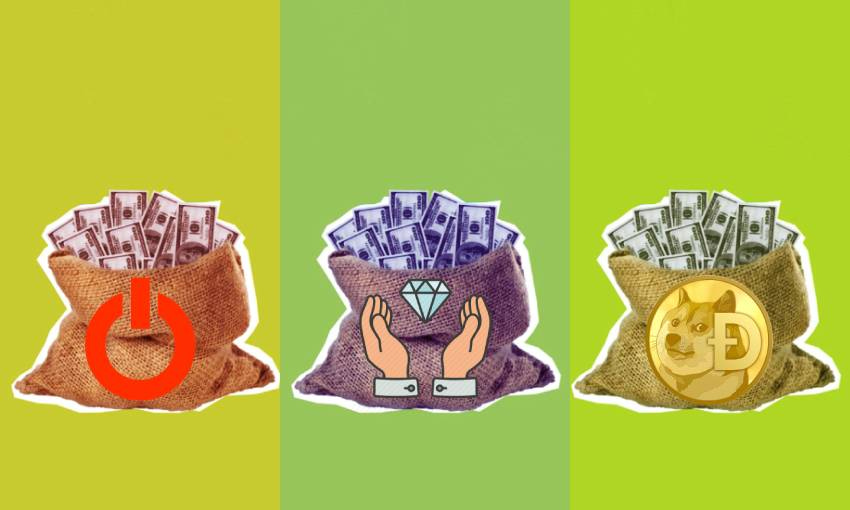Economic picture positive but patchy
The headlines are great, but some are falling much further behind
Good morning and welcome to The Bulletin for Thursday 4 February, by Alex Braae for The Spinoff. Presented in partnership with Z Energy.
In today’s edition: New jobs numbers show hopeful economic situation, provisional approval given for Pfizer vaccine, and proposals for NZ history curriculum announced.
(Getty Images)
The latest top-line economic data shows a recovery is now well underway – however, the overall economic health of the country remains mixed. The biggest news from Stats NZ yesterday was that the unemployment rate is now down to 4.9% for the December quarter, well below what was forecast, and a sharp drop on the previous quarter – for context, any drop at all would have previously been seen as remarkable. As the NZ Herald reports, the seasonally adjusted number of employed people also rose over the quarter. That might sound tautological, but the two numbers don't always move hand in hand.
The underutilisation rate is also down – that's people who are working but want more. And wonder of wonders – wages are also up 1.6% in the year to the December quarter. That's slightly slower than would be the case in a normal year, but 2020 wasn't a normal year.
Kiwibank chief economist Jarrod Kerr was quoted in the Herald story saying it was fantastic news. "A shallower peak in unemployment means we will have less economic scarring. And the sharp bounceback in hours worked means we will see higher than expected income and consumption across the economy." The latest Kiwibank Household Spending Tracker has details of higher than expected economic activity already taking place, with the "post-lockdown splurge" continuing.
So what's the catch? The recovery has been uneven. As the Council for Trade Unions pointed out (in stories on Newshub and Stuff) Māori and Pasifika unemployment remains stubbornly high. In fact, both have gone up. A Māori jobseeker quoted in the Newshub story described how demoralising it is to keep going into Work and Income in Northland, with few opportunities coming through. And the unemployment rate for women generally remains higher than that for men, a hangover of the Covid economic shock. Youth unemployment is also up.
The Stuff story noted that wage increases also haven't been shared equally – CTU economist Craig Renney said "when you dig in to that data, 55 per cent of workers recorded that they didn't have a pay rise in the past year and that's the highest figure that hasn't had a pay rise since March 2010.'' So while the headlines are good news, we're still seeing evidence of the K-shaped recovery, where some are getting ahead, and others are falling further behind. And on that point, a recent release of TradeMe data described the rental market as "strong" – in other words, rental prices have gone up. If you think about who's likely to be paying rent, that picture of people falling behind comes into sharper focus.
Provisional approval has been given for the Pfizer Covid-19 vaccine to be rolled out, and the first shipment is expected by the end of March. Justin Giovannetti reports border workers, their families and airline staff will be first in line – a process expected to take several weeks. A large scale vaccination programme isn't expected until the second half of the year. Meanwhile, we've republished a piece by Oxford University researcher Roderick Bailey, who has written about the dangers posed by "vaccine nationalism".
An announcement has been made to clarify what changes will be made to the NZ history curriculum in schools. Radio NZ reports it will include region-specific events and how they shaped areas – education minister Chris Hipkins gave the example of kids in Waikato learning about Governor Grey's invasion "and the implications this had for people living in the region." National's Paul Goldsmith has described the proposal as including too much "identity politics" and not enough on economics and institutions, reports Stuff. You can have a look at the proposals and give feedback here.
Our Members make The Spinoff happen! Every dollar contributed directly funds our editorial team – click here to learn more about how you can support us from as little as $1.
Residents of two Otago towns have been told not to use the water supply, after sporadic evidence of high levels of lead. Radio NZ has covered the issue for Waikouaiti and Karitane, with the latest update being the revelation that the first spike in lead content was seen six months ago. It was thought to be a one-off, but over 90 samples taken in the period of time, six saw spikes. A small amount of lead won't do much harm, but exposure over a long period can have serious effects.
Another piece worth reading about the timeline proposed by the Climate Change Commission for cutting emissions: Newsroom's Marc Daalder and David Williams have pulled together a list of year by year expectations, and looked at sector specific challenges. I made a brief comment about this a few days ago, but it really illustrates how tight the time frame is, and how it would have been nice to have a few more years to chip away. Better get cracking now then.
What a day for Wellington. To run you through the events of yesterday: A sinkhole opened up on Jervois Quay. Evans Bay Parade was closed after a gas leak. Department store David Jones announced it was closing down. An expensive and poor quality flat went viral and was subsequently described as being like a "dungeon". But on the other hand, it looks like the weather has been providing some much needed good days, so the capital remains unbeaten.
There was a lot of feedback on Bruce's proposal yesterday around destocking pets. Like, a loooot. And it was mostly not in favour. Here's a sample:
Paul asked "I wonder how the methane contribution of cats and dogs compares with that of sheep, cattle and other farm animals?" Tom said "the rationale for destocking is not to 'single out a specific sector' - though this is inherent in the approach of the CCC, who have to give sector specific recs. Rather, it is to give a path for our single largest emitting sector which, btw, also had an exemption built into the ZCA [Zero Carbon Act] about how their emissions are treated."
And Rosie argued that "the carbon impact of a herd of cows vs how much my two cats eat is not comparable. I agree we should all be making sacrifices. But rather than demonise pets (which are proven to be good for mental wellbeing, which is even more important given the challenges we’re all collectively facing) perhaps we should be focusing each of our individual attention on the changes each of us can make, based on our individual circumstances, rather than pointing the finger at each other."
A quick correction: I linked to a piece by Florence Dean yesterday and described her as a law clerk – in fact, she is now a fully fledged lawyer with the Ngāi Tahu Māori Law Centre. My apologies for giving her an out of date title.
Got some feedback about The Bulletin, or anything in the news?
Drop us a line at thebulletin@thespinoff.co.nz
Right now on The Spinoff: Josie Adams meets amateur investors riding the wave of crypto and Gamestop shares. George Fenwick interviews a Kiwi nurse in London about being on the harsh end of their pandemic. Justin Latif updates his coverage of the Māngere-Ōtāhuhu by-election, which has been inflamed by dirty politics charges. Emily Writes explores the marine ecosystem superheroes known as Salps, which you've probably swam among this summer. Dr David Galler hopes for an announcement at Waitangi of something that will transform Māori health outcomes. I write about how the Black Caps ended up in the World Test Championship, and how they might go once they're there. And Sam Brooks reviews It's a Sin, a drama charting the history of the AIDS crisis in London.
For a feature today, an analysis of what has happened in Myanmar, with the military reasserting control in a coup. David Scott Mathieson at the New York Times (paywalled) writes about how this was effectively a pre-emptive strike against the military to preserve their entrenched power. Progress towards democracy had been painfully slow – but it had been taking place until the events of this week. Here's an excerpt:
Activists have criticized the N.L.D. for failing to repeal repressive laws or speak out about political prisoners and attacks on the media. Ms. Aung San Suu Kyi herself has been accused, by both Myanmar political organizers and Western analysts, of displaying a sometimes withering disdain for civil society, journalists and intellectuals.
Some N.L.D. members quietly admitted to me over the past five years that a precarious modus vivendi had developed with the military: The administration seemed to pursue a democratization agenda predicated on avoiding pushback from the generals.
Then came the party’s victory in the November election, and another sweeping mandate for a second term. That seemed to upset the uneasy balance of power in place, at least in the eyes of the Tatmadaw, and to threaten the military’s prerogatives and privileges. The coup may have been a pre-emptive strike against its losing ground.
In sport today, a really interesting and revealing interview about what it's like to get smashed in a professional fight. It's Time for Sports has interviewed New Zealand fighter Dan 'Hangman' Hooker, who just got demolished by Michael Chandler in the UFC. Some of the most telling comments discuss what it's like to "lose time" during a fight – getting hit so badly that you don't realise how you ended up on the floor getting pummelled. Hooker also talked about being honest with himself about concussion symptoms, because in the sporting world administrators and coaches will often let an athlete who is lying about their symptoms slide.
That's it for The Bulletin. If you want to support the work we do at The Spinoff, please check out our membership programme







